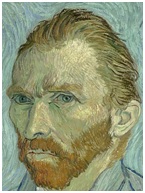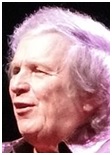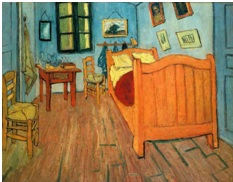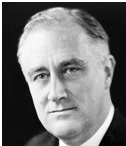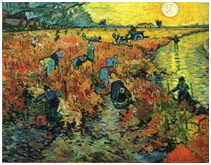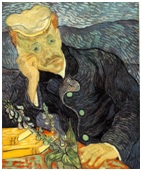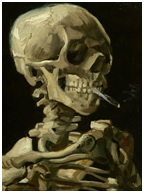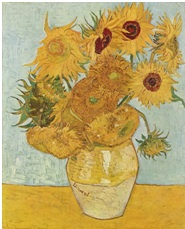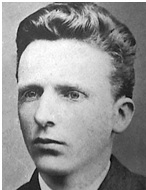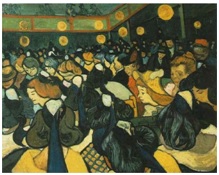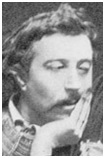|
 |
|
 |
|
|
||
Vincent van Gogh - Creativity and Art
Vincent van Gogh (1853-90)
Dutch impressionist painter (pictured right in his 1889 self-portrait) Lived briefly in Britain in (1873-6) but painted many of his famous paintings in Arles in Provence (1886-90). His madness (probably caused by epilepsy and now totally treatable) drove him to
The subject of Don McLean's (pictured right) 1972 hit single, Vincent, in which he sums up van Gogh's tragic life: “This world was never meant for one as beautiful as you”.
Why was he so creative?
1. Purpose and imagination He found purpose and inspiration from:
He didn’t work to make money but to paint the way he wanted, however unpopular that might have been. 2. Determination, single-mindedness and energy He tried art dealing, preaching and teaching before he finally discovered his talent for painting. In his last two years in Arles, he painted over 200 paintings, despite constant
Pictured right above is his 1888 painting of his bedroom at Arles.
3. Love of painting and concentration Painting gave him more fulfilment than anything else, particularly after the two loves of his life rejected
him. “Happiness lies in the joy of achievement, in the thrill of creative effort”, he said (the American president, Franklin D. Roosevelt , pictured right, said the same). He painted best when he
He said in 1888: “I’m not conscious of myself anymore… The picture comes to me as a dream”. 4. Self-belief Van Gogh:
His doctor (Dr. Gachet) in Arles even used his portrait (pictured right below) by van Gogh (a gift) to block a hole in his hen house. It was sold for $82.5 million in 1990. 5. Originality His style was completely original, wanting to “always work in a personal way”. He revolutionized portrait painting, when it had gone completely out of fashion.
6. Inspiration from experience and experimentation His paintings were influenced by his: a) experience (and thoughtful observation of the world around him).
b) extreme poverty (that led him to draw his famous 1885 painting of a skeleton smoking a cigarette, pictured right).
c) experimentation His later work (like his famous paintings of sunflowers, pictured right) experimented with:
d) risk taking He always:
“What would life be if we had no courage to attempt anything?”, he asked.
7. Pressure with peace and passion He worked best under pressure with:
8. Support His devoted brother, Theo (pictured right), an art dealer, gave him
He also discussed his work with other painters in Paris cafés (see point 9).
9. Learning He learned from:
Van Gogh drew his paintings of sunflowers (see point 6 above) in 1888 for Gaugin’s bedroom, when he stayed as a guest in Arles.
10. Good health His creativity in Provence was helped by his better health. “Cold water, fresh air and simple good food, decent clothes and a decent bed and no women”, he recommended.
Key quote on happiness Happiness...lies in the joy of achievement, in the thrill of creative effort (also said by Franklin D. Roosevelt).
Key quotes on work One must work and dare if one really wants to live. What would life be if we had no courage to attempt anything? If I do nothing, if I study nothing, if I cease searching, then, woe is me, I am lost
Key quote on success Our greatest achievement consists not in never failing, but in rising every time we fall.
Key quote on stress and pain In fighting the difficulties the inmost strength of the heart is developed.
Key quote on quality Great things are done by a series of small things brought together.
Key quote on creativity I want to touch people with my art. I want them to say ‘he feels deeply, he feels tenderly'.
Key quote on death Dying is hard, but living is harder still. |
|
|
||
|
|
||
| Copyright © wisdomtowin.com 2025 All Rights Reserved | ||
|


